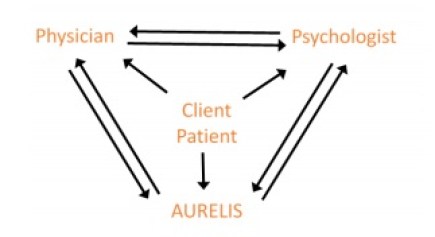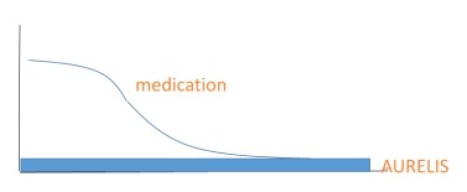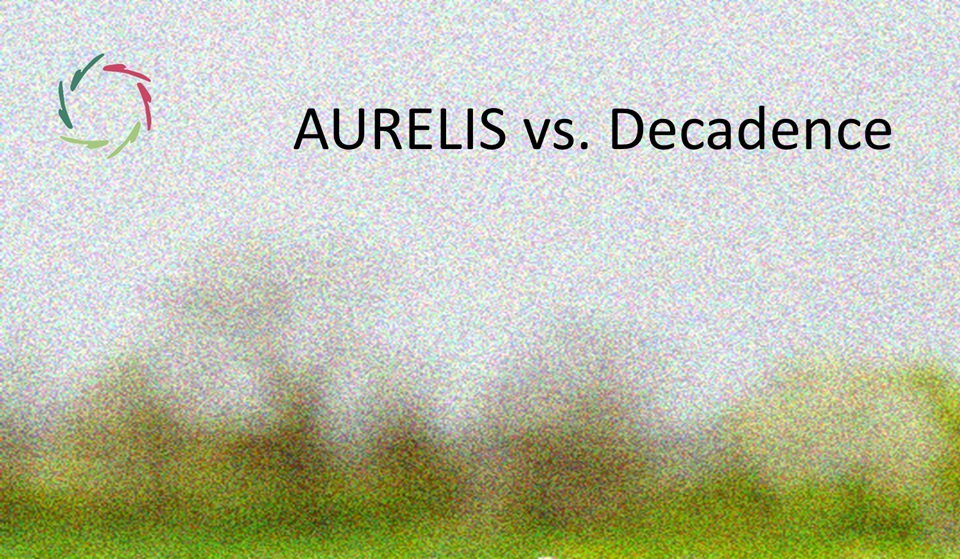AURELIS in Healthcare Context

Can AURELIS be a part of healthcare as one corner of a triangle with the client/patient central to the happening?
The ‘deeper mind’ as domain
Many people with persistent mind-related problems, including psycho-somatic issues, do not seek professional help. With AURELIS – including Lisa [see: “Lisa“] – they have additional options while staying totally within the domain of rationality. [see: “AURELIS USP: ‘100% Rationality, 100% Depth’“]
AURELIS = mental hygiene
In my view, broadly two groups of nonspecific factors in this hygienic striving are placebogenic and empathic:
- Placebo: In AURELIS, the (placebo-less) ‘placebo’-effect is reached openly and directly ― also depending on the user. The endeavor is to be as open as possible by way of unveiled autosuggestion. AurelisOnLine sessions are profoundly autosuggestive invitations to change from inside. Note the difference with being changed.
- Empathy: AURELIS coaching methods are applied by the coach towards him/herself. The ‘instrument’ towards the coachee is the open empathic coach. [see: “Compassionate Goal of Coaching“] Open empathy emerges from inside, while the term ‘therapy’ denotes products/methods being applied to clients/patients from outside.
In a mental-hygienic (AURELIS) setting, both are about Inner Strength [see: “Inner Strength“] emerging in an open and profoundly ethical way. [see: “Five Aurelian Values“]
Triangle
This drawing also shows three possible entries into psycho-somatic healthcare:

AURELIS can be used in concert with the client/patient, the psychologist, and the physician. All roads are possible. For instance, in the case of chronic low back pain:
- A patient goes to his physician, who does some tests and prescribes a painkiller.
- The physician also points the patient to AURELIS and gives him a subscription. The patient comes home and can immediately start with AurelisOnLine sessions.
- After a while, the patient can also ask for video coaching. After such coaching, the coach provides a summary. The client can decide to let this be sent to the physician.
- When consulting the physician again, they decide what to do with the painkillers or other medical procedures. The patient can continue using AurelisOnLine and maybe talk with his coach and/or Lisa.
- The physician may gradually reduce the painkillers, according to the principle of ‘gentle slope:’
The gentle slope
This is generally crucial within AURELIS.

For instance:
- A gentle diminishment of medication ― AURELIS getting in place as part of the safety net, and at the pace of the patient.
- It is recommended to use AURELIS before diminishing the medication.
- The patient may feel additional pain relief through AURELIS.
- The diminishment of medication should not lead to more pain, also not temporarily.
This principle of the gentle slope is generally applicable when using AURELIS. The gentleness is needed for natural growth to happen ― such as the use of AURELIS towards quitting smoking. This preferably starts a while before quitting day, giving time and support to grow beyond the addiction.
The gentle slope is relevant to many domains. Also, it is appropriate to the whole domain of psycho-somatic healthcare towards the future.
I hope this will happen gently, yet strongly indeed ― no need for hurting anyone.


